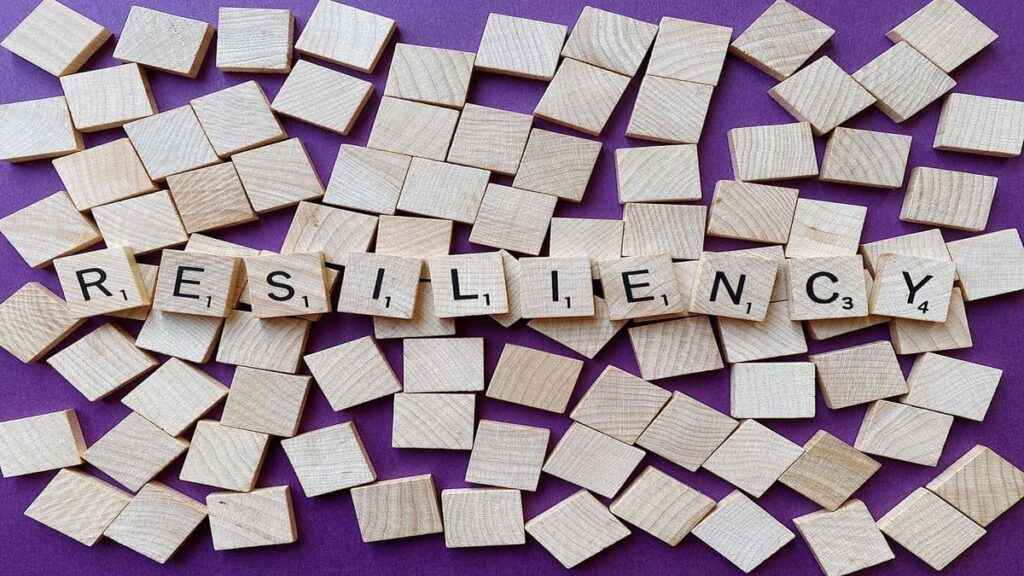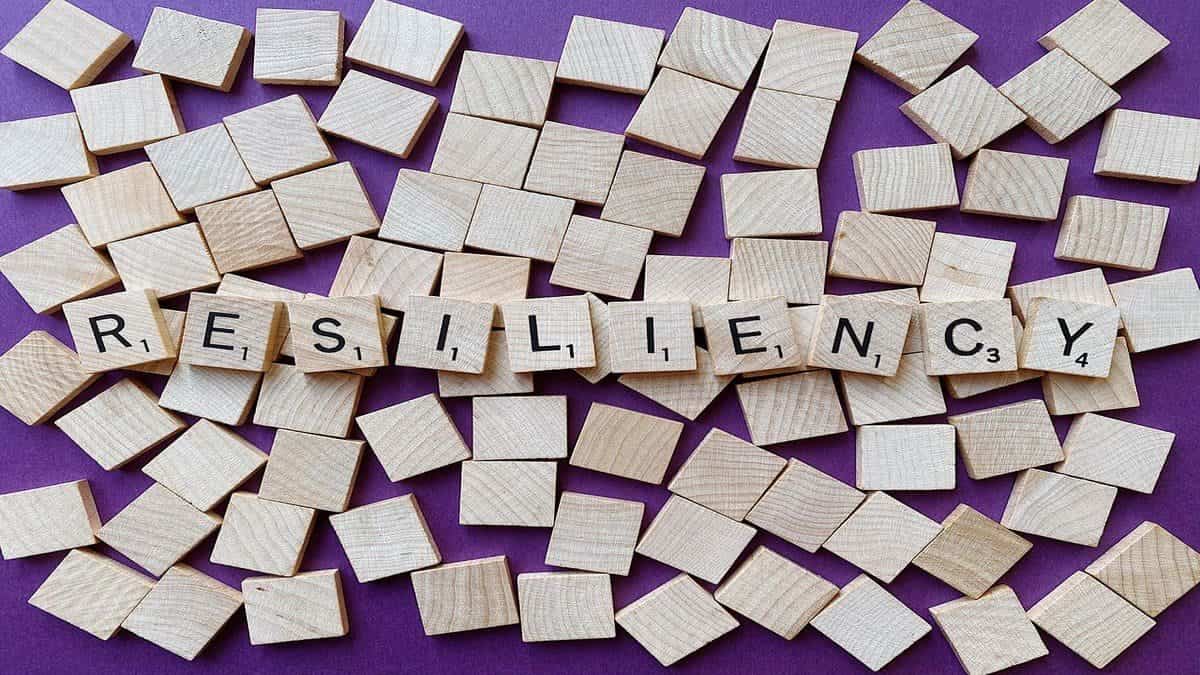Resilience Training: 28 Essential Techniques for Bouncing Back from Adversity

Resilience training is the ability to bounce back from adversity, whether it be a personal setback or a major life crisis. It is a crucial quality to possess in order to navigate the ups and downs of life and to thrive in the face of challenges. While some people are naturally more resilient than others, resilience training can be developed and strengthened through training. Here are a few ways you can improve your resilience:
Practice gratitude
Focusing on the things you are grateful for can help you maintain a positive outlook and reduce stress. Keep a gratitude journal and write down three things you are thankful for each day.
Exercise
Physical activity has been shown to have numerous mental health benefits, including improving resilience. Engage in activities that you enjoy, such as going for a run or taking a yoga class. Yoga will prove to be a boon for resilience training.
Seek social support
Building and maintaining strong relationships with friends and loved ones can provide a sense of belonging and help you cope with difficult situations. Don’t be afraid to reach out for support when you need it. Develop resilience training within yourself.
Learn from setbacks
Instead of dwelling on your failures, try to view them as learning opportunities. Reflect on what you could have done differently and use that knowledge to improve in the future.
Develop a growth mindset
Having a growth mindset means believing that you can improve and grow through effort and learning. This can help you embrace challenges and see them as opportunities for personal development. It is very important to have a growth mindset for resilience training.
Practice mindfulness
Being present in the moment and paying attention to your thoughts and feelings can help you manage stress and maintain a sense of perspective. Try incorporating mindfulness techniques such as deep breathing or meditation into your daily routine.
Set healthy boundaries
It’s important to take care of yourself and set limits on the demands you take on. This can help prevent burnout and allow you to better handle the challenges that come your way.
Seek professional help
If you are struggling to cope with a difficult situation or feel overwhelmed, don’t hesitate to seek help from a mental health professional. Therapy can provide a safe and supportive space to work through your challenges and develop healthy coping strategies.
Find meaning and purpose
Having a sense of purpose and meaning in your life can provide a sense of direction and give you a reason to persevere through difficult times. Reflect on what is important to you and what gives your life purpose, and make an effort to incorporate those things into your daily life. Unless you find a reason in your life, you will not be able to develop resilience training properly.
Take care of your physical health
Taking care of your physical health is an important aspect of maintaining overall resilience. This includes getting enough sleep, eating a healthy diet, and engaging in regular physical activity.
Practice problem-solving
When faced with a challenge, try to identify the problem and come up with possible solutions. This can help you feel more in control and better equipped to handle difficult situations.
Find ways to relax
Taking time to relax and unwind can help you recharge and better handle the stresses of life. Find activities that help you relax, such as reading, listening to music, or spending time in nature. It is also necessary to relax to develop resilience training within yourself.
Seek out new experiences
Expanding your horizons and trying new things can help you develop a sense of flexibility and adaptability. This can in turn help you handle challenges more effectively. The more new experiences you take, the more resilience training will develop in you.
Learn from role models
Observing how others handle adversity can provide valuable insight and inspiration. Look for role models who exhibit resilience and try to incorporate their strategies into your own life.
Use humor
Laughter can help reduce stress and improve your overall sense of well-being. Don’t be afraid to use humor as a way to cope with difficult situations and maintain a positive outlook.
Practice self-care
Taking care of your physical, emotional, and mental well-being is essential to maintaining resilience. Make time for activities that nourish your body and mind, such as getting enough sleep, eating a healthy diet, and engaging in activities you enjoy.
Build a support network
Surrounding yourself with supportive people can provide a sense of belonging and help you cope with challenges. Cultivate relationships with friends and loved ones who are there for you in good times and bad.
Find healthy ways to cope with stress
It’s natural to feel stressed in the face of adversity, but it’s important to find healthy ways to cope with stress. This can include activities like deep breathing, exercise, or talking to a friend.
Seek out new perspectives
Sometimes it can be helpful to step back and look at a situation from a different angle. Try to see things from others’ perspectives and consider alternative ways of looking at a problem.
Practice forgiveness
Holding on to resentment and anger can be emotionally draining and hinder your ability to move forward. Practice forgiveness, both for yourself and others, as a way to let go of negative emotions and improve your overall well-being.
Take time to reflect
Set aside time each day to reflect on your thoughts and emotions. This can help you become more self-aware and better understand your own coping strategies.
Practice acceptance
While it’s natural to want to change difficult situations, sometimes it’s not possible. Practicing acceptance can help you let go of what you cannot control and focus on what you can.
Seek out positive role models
Surround yourself with people who exhibit resilience and inspire you to be your best self. Look for role models who exhibit the qualities and behaviors you want to emulate.
Cultivate a positive outlook
While it’s natural to feel down when faced with challenges, try to focus on the good things in your life. This can help you maintain a positive outlook and better handle difficult situations.
Practice self-compassion
Be kind and understanding towards yourself, especially during times of struggle. Self-compassion can help you cope with setbacks and maintain a positive outlook.
Find ways to give back
Helping others can provide a sense of purpose and meaning, and can also boost your own sense of well-being. Consider volunteering or finding other ways to give back to your community.
Learn stress-management techniques
Chronic stress can take a toll on your physical and emotional well-being. Find healthy ways to manage stress, such as through relaxation techniques or regular exercise.
Seek out new challenges
While it can be tempting to avoid challenges, stepping outside of your comfort zone can help you build resilience. Look for opportunities to try new things and push yourself to grow. Accept new challenges to develop resilience training within you.
Conclusion
By incorporating these practices into your daily routine, you can build your resilience and become better equipped to handle life’s ups and downs. Remember, resilience is not about never experiencing hardship, but rather about developing the skills and mindset to overcome it. The better you develop resilience training, the smoother your life will be.







